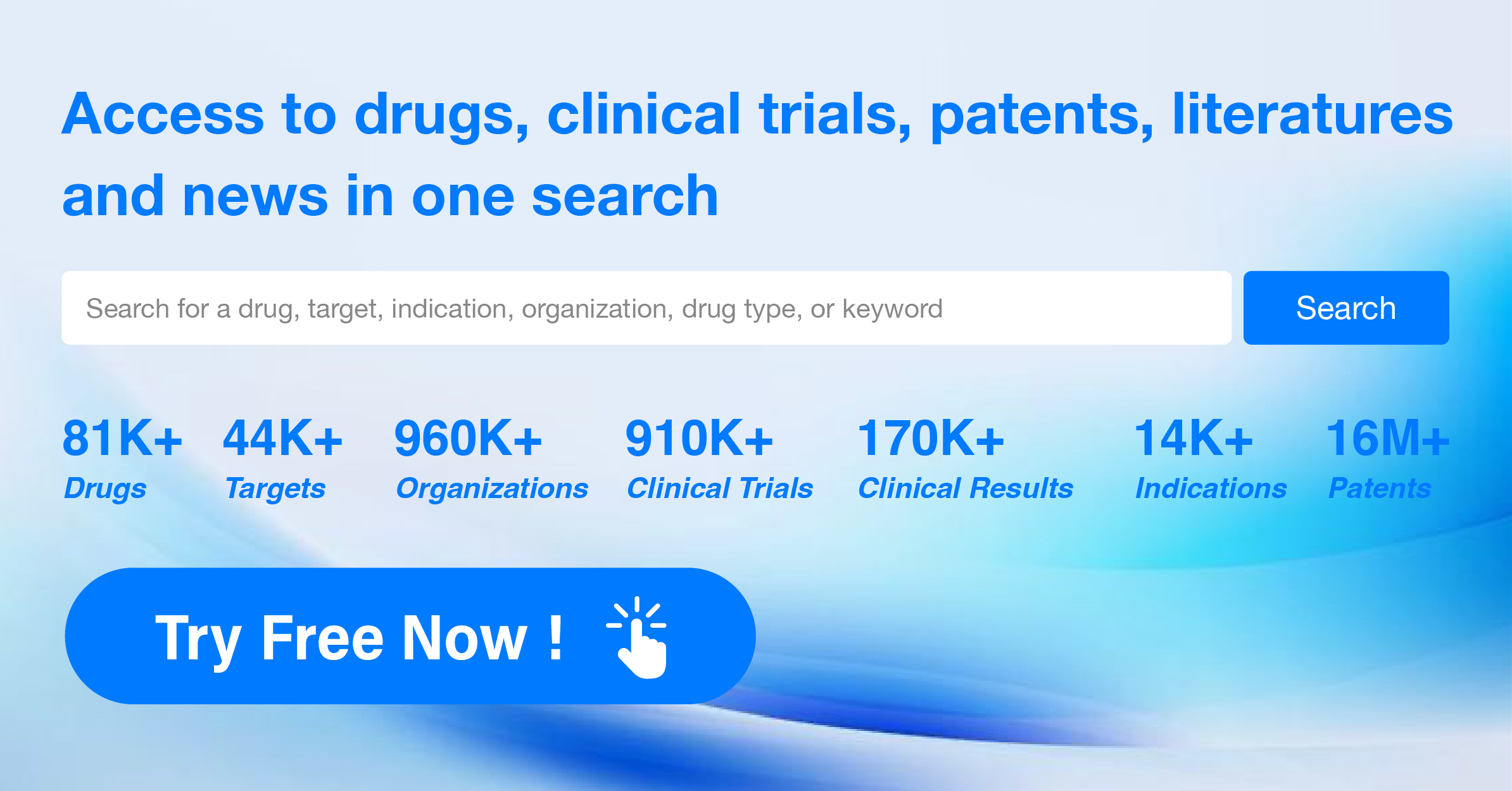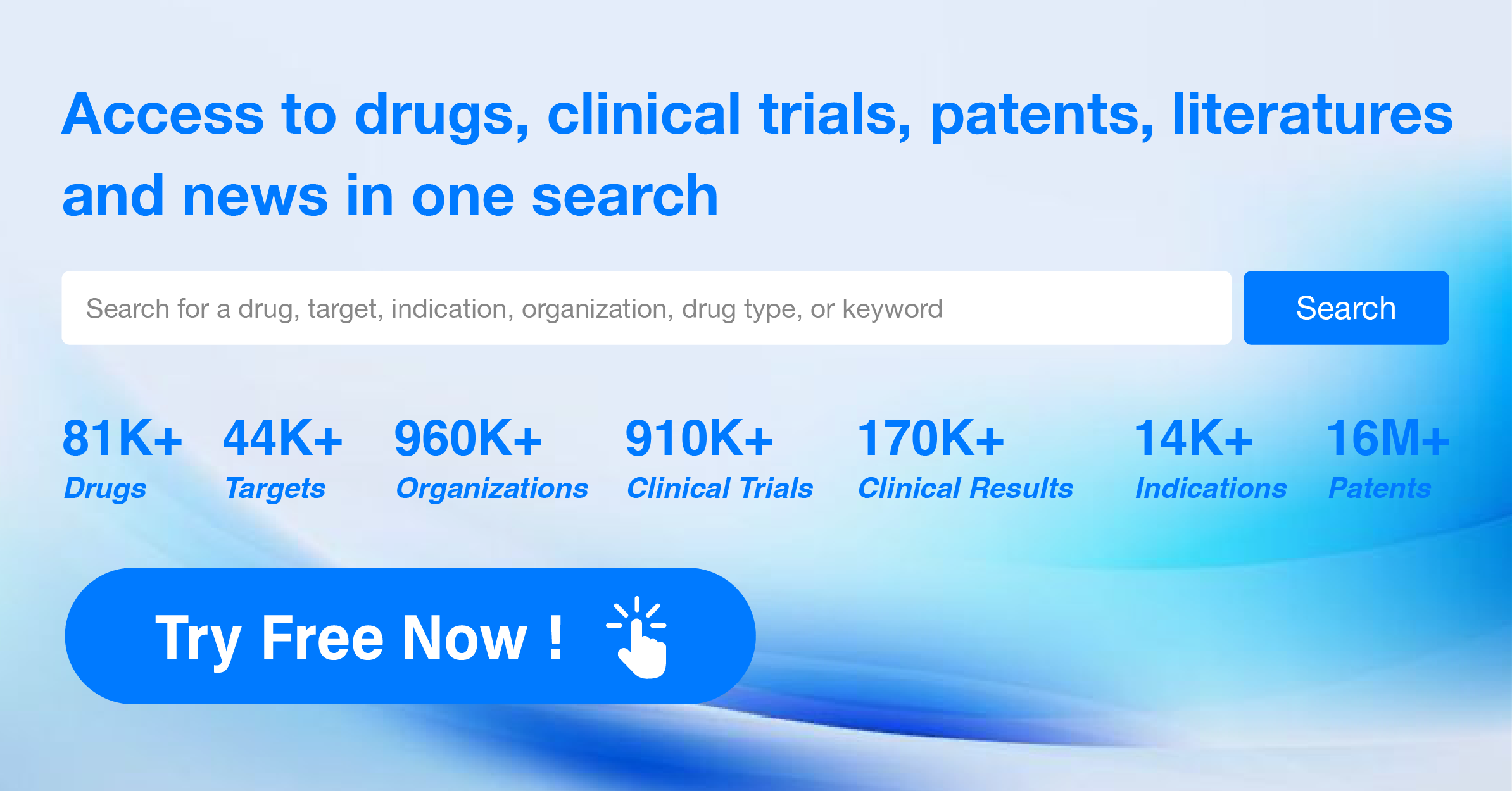Global New Drug Research and Development Progress Weekly Report(4.29-5.5)
Global Pharmaceutical Research and Development Progress
1.BMS' Myocardial Myosin Inhibitor Mavacamten Approved in China for Treatment of Obstructive HCM
On April 29, Bristol Myers Squibb's (BMS) groundbreaking myocardial myosin inhibitor, Mavacamten, received priority review approval from China's National Medical Products Administration (NMPA) for the treatment of adult patients with New York Heart Association (NYHA) Functional Class I-III obstructive hypertrophic cardiomyopathy (HCM) to improve exercise capacity and symptoms. This marks the world's first and currently only approved myocardial myosin inhibitor.
Mavacamten was initially developed by MyoKardia, which received orphan drug designation and breakthrough therapy designation from the US FDA. In October 2020, BMS acquired MyoKardia for $13.1 billion, securing mavacamten. The drug received FDA approval in April 2022.
The Chinese approval is based on global EXPLORER-HCM and Chinese EXPLORER-CNI Phase I clinical studies. Results showed that in Chinese patients with obstructive HCM, Mavacamten demonstrated significant improvement in Valsalva left ventricular outflow tract (LVOT) peak pressure gradient, with improvements observed in all secondary endpoints including LVOT obstruction, clinical symptoms, health status, cardiac biomarkers, and cardiac structure.
In terms of safety, Mavacamten was well-tolerated in Chinese patients with obstructive HCM and exhibited safety profiles consistent with previous studies.
2.Daiichi Sankyo/AstraZeneca's Enhertu Phase III clinical trial, DESTINY-Breast06, has yielded positive results
On April 29th, Daiichi Sankyo announced that the trial had met its primary endpoint, demonstrating statistically significant and clinically meaningful improvements in progression-free survival (PFS) for patients with hormone receptor (HR)-positive, human epidermal growth factor receptor 2 (HER2) low-expression metastatic breast cancer who had received one or more prior endocrine therapies. The study's main objective was to assess PFS in this population, as measured by blinded independent central review (BICR). Key secondary endpoints included overall survival (OS) in patients with HER2 low-expression and PFS and OS in the overall trial population (HER2 low-expression and HER2 ultra-low expression).
3.X4 Pharmaceuticals' groundbreaking small molecule therapy, Xolremdi (mavorixafor), has been approved by the US FDA for market launch
On April 30th, X4 Pharmaceuticals announced that the FDA has approved Xolremdi capsules for the treatment of patients aged 12 and above with WHIM syndrome, aimed at increasing the number of mature neutrophils and lymphocytes in the circulating blood. The press release noted that this is the first approved therapy specifically targeting WHIM syndrome patients. Previously, this therapy had received Breakthrough Therapy designation from the FDA.
The FDA's approval is based on the results of the Phase 3 clinical trial, 4WHIM, a global, randomized, double-blind, multi-center study with a placebo control that lasted one year. The trial involved 31 patients aged 12 and above who had been diagnosed with WHIM syndrome. The efficacy of Xolremdi was measured by improvements in the absolute neutrophil count (ANC) and absolute lymphocyte count (ALC), as well as a reduction in infections.
In the 4WHIM trial, Xolremdi treatment significantly increased the duration of time that ANC levels exceeded the threshold (≥500 cells/microliter) and ALC levels exceeded the threshold (≥1000 cells/microliter) compared to the placebo group, with p-values of less than 0.0001. Further analysis showed that the total infection score (adjusted for severity) was reduced by approximately 40% in the Xolremdi treatment group compared to the placebo group. The annualized infection rate was also reduced by 60% in the Xolremdi treatment group compared to the placebo group.
4.Chia Tai Tianqing's new lung cancer drug, Unecritinib, has been approved for market launch
On April 30th, Chia Tai Tianqing's new lung cancer drug, Unecritinib, was approved for market launch by the National Medical Products Administration (NMPA) of China. The drug, which comes in the form of Fumaric Acid Unecritinib Capsules, is intended for use in adult patients with locally advanced or metastatic non-small cell lung cancer (NSCLC) that is positive for ROS1. Developed by Chia Tai Tianqing, Unecritinib is a Category 1 innovative drug and functions as a novel small molecule receptor tyrosine kinase inhibitor with strong inhibitory effects on ALK, ROS1, and MET gene mutations.
In July 2023, Chia Tai Tianqing announced the results of a Phase I/II clinical study on Unecritinib for the first-line treatment of ROS1 fusion-positive advanced NSCLC patients who had not received or had received chemotherapy. The full text of the study was published online in the journal Signal Transduction and Targeted Therapy. The approved indication is based on a Phase II single-arm, multi-center clinical study evaluating the efficacy and safety of TQ-B3101 capsules as monotherapy for ROS1-positive NSCLC subjects. The study showed that among the 111 enrolled patients, the objective response rate (ORR) assessed by the Independent Review Committee (IRC) reached 81.08%, with a median duration of response (DOR) of 20.3 months.
5.Roche's Ophthalmology Bispecific Antibody Receives Approval for New Indication in China
Roche's ophthalmic bispecific antibody, Faricimab, has been approved for a new indication in China, which is speculated to be for the treatment of macular edema secondary to retinal vein occlusion. Faricimab is a bispecific monoclonal antibody developed by Roche that targets angiopoietin 2 (Ang2) and vascular endothelial growth factor A (VEGFA). In January 2022, Faricimab was first approved for marketing in the United States under the trade name Vabysmo for the treatment of diabetic macular edema (DME) and wet age-related macular degeneration (wAMD). In October 2023, it received FDA approval for a new indication - macular edema secondary to retinal vein occlusion (RVO). The approval of this new indication for macular edema secondary to retinal vein occlusion is mainly based on the positive results of two global Phase III studies (BALATON and COMINO). After 20 weeks of treatment (Part 1 of the study), patients in the trial group continued to receive personalized treatment interval (PTI) regimens from Week 24 to Week 72 (Part 2 of the study). The primary endpoint of the study was the change in best corrected visual acuity (BCVA) score from baseline at Week 24. The study showed that patients in the Vabysmo group had sustained improvements in vision compared to the Aflibercept group.
6.Merck's blockbuster immuno-oncology combination therapy hits primary endpoint in Phase III clinical trial
On May 2nd, Merck announced that its flagship PD-1 inhibitor, Keytruda, met its primary endpoint in the Phase III clinical trial KEYNOTE-811. When used in combination with the anti-HER2 antibody trastuzumab and chemotherapy as a first-line treatment for patients with HER2-positive, unresectable locally advanced or metastatic gastric or gastroesophageal junction (GEJ) adenocarcinoma, Keytruda significantly prolonged patients' overall survival (OS). Previously, the US FDA had granted accelerated approval for this Keytruda combination therapy based on data from the trial showing objective response rate (ORR) and duration of response.
Interim analysis results published last year in the prestigious medical journal The Lancet also demonstrated that this Keytruda combination therapy achieved another primary endpoint of KEYNOTE-811 by significantly extending patients' progression-free survival (PFS). At a median follow-up time of approximately 28 months, the PFS for the Keytruda combination therapy group was 10 months, compared to 8.1 months for patients who received only trastuzumab and chemotherapy. Adding Keytruda reduced the risk of disease progression or death by 28% (HR=0.72, 95% CI: 0.60-0.87; p=0.0002).
7.SELLAS Life Sciences Announces Positive Phase 2 Clinical Results for Precision Cancer Therapy
On May 2nd, SELLAS Life Sciences announced that its investigational highly selective CDK9 inhibitor, SLS009, achieved positive preliminary results in a Phase 2a clinical trial. In patients with relapsed/refractory acute myeloid leukemia (r/r AML) harboring ASXL1 mutations, the cohort treated with the optimized dose of SLS009 achieved a 100% remission rate. This Phase 2a trial aimed to assess the efficacy and safety of SLS009 in treating r/r AML patients. Analysis of the genetic mutations in a patient from a previous Phase 1 trial who achieved complete remission for over 8 months showed that the patient also carried ASXL1 mutations. The company plans to expand the patient cohort in this Phase 2a trial to include more AML patients with ASXL1 mutations, as well as those with myelodysplastic syndrome-related variations other than ASXL1 mutations.
Recently, Neurocrine Biosciences announced that the US FDA has approved a new formulation of its Huntington's disease therapy, Ingrezza (valbenazine). This new formulation, called Ingrezza Sprinkle, provides an alternative dosing option for Huntington's disease patients who have difficulty swallowing tablets. Ingrezza Sprinkle is an oral granule that can be sprinkled on soft food and taken with the food. The dose and bioavailability of Ingrezza Sprinkle are the same as the already approved Ingrezza.
For more information on the progress of drug development, please follow the Synapse database.
Dynamics of Global Pharmaceutical Trade Cooperation
1.ONO Pharmaceutical Acquires Deciphera for $2.4 Billion to Expand Oncology R&D Pipeline
On April 30th, Deciphera Pharmaceuticals announced that it had entered into a definitive merger agreement with ONO Pharmaceutical. Under the agreement, ONO will acquire Deciphera for approximately $2.4 billion. Through this merger, ONO and Deciphera will accelerate the realization of their shared vision of delivering innovative medicines to patients worldwide. Deciphera possesses expertise in the discovery and development of kinase inhibitors, a well-established commercialization platform in the United States and Europe, and global clinical development capabilities. Its small molecule inhibitor, Qinlock, has been approved for the treatment of gastrointestinal stromal tumor (GIST) patients in the United States and more than 40 other countries and regions. Furthermore, Deciphera boasts a diverse pipeline of candidates with "best-in-class" and "first-in-class" potential, including vimseltinib, DCC-3116 (a ULK inhibitor), and several other oncology drug candidates. Vimseltinib is an investigational, potent, highly selective oral CSF1R kinase inhibitor. Previously announced pivotal Phase 3 clinical trial results demonstrated that vimseltinib achieved a statistically significant and clinically meaningful improvement in the objective response rate (ORR) when treating tenosynovial giant cell tumor (TGCT) patients. Deciphera expects to submit a New Drug Application (NDA) to the U.S. FDA in the second quarter of 2024 and a Marketing Authorization Application (MAA) to the European Union in the third quarter of 2024. This acquisition will strengthen ONO's oncology R&D pipeline and support its efforts to become a global pharmaceutical company.
2.Astellas and Poseida Collaborate to Develop Universal CAR-T Therapy
On May 2nd, Astellas Pharma and Poseida Therapeutics announced that Astellas' wholly-owned subsidiary, Xyphos Biosciences, had entered into a research collaboration and licensing agreement with Poseida to combine the two companies' innovative cell therapy platforms and jointly develop universal CAR-T (convertibleCAR) therapies for the treatment of multiple cancers. Xyphos' unique ACCEL technology platform expresses genetically engineered NKG2D receptors on CAR-T cells, which are only activated when bound to specific bispecific antibodies. The company's designed bispecific antibodies can bind to the NKG2D receptor on one end and to tumor cell surface antigen targets on the other, thereby activating the CAR-T cells. Notably, this design allows researchers to continuously switch the specificity of CAR-T cells by simply changing the antigen targets of the bispecific antibodies, targeting different tumor antigens. This provides a means to overcome cancer cell resistance through antigen loss. Under the agreement, the collaboration will combine Poseida's proprietary allogeneic CAR-T platform with Xyphos' ACCEL technology to jointly develop two convertibleCAR candidates targeting solid tumors. Xyphos will cover the research and development costs incurred under the research agreement and will be responsible for the development and future commercialization of products arising from the collaboration. Poseida will receive a $50 million upfront payment and up to $550 million in potential development and sales milestone payments.





